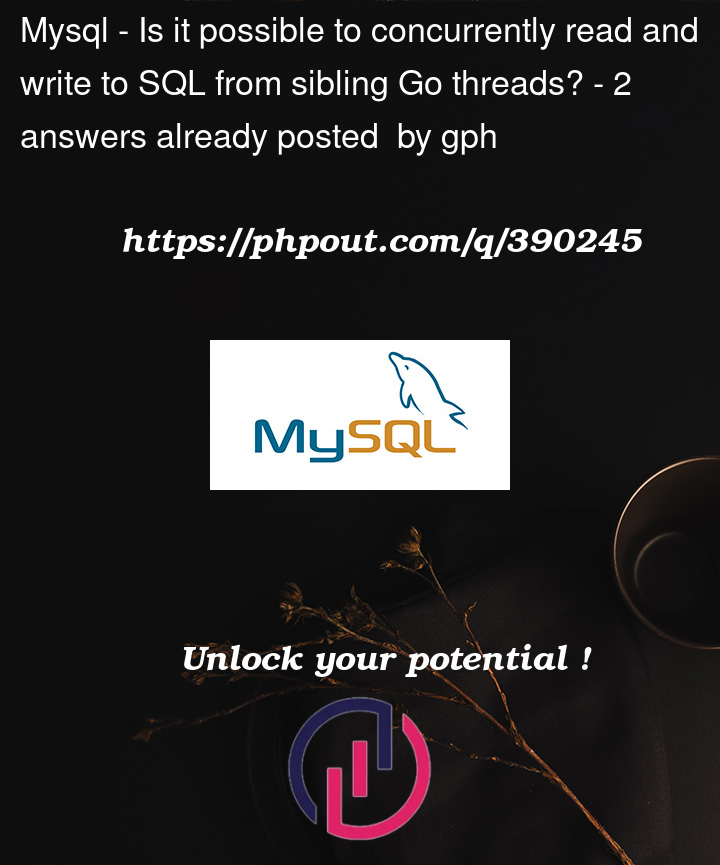I’m essentially doing an ETL on a large SQL table. I need to pull rows, perform a calculation, then write them back to the same server but a different table. What I’m seeing is workChannel fill up then everything stops. If I take out the SQL insert statement it runs through all rows. I thought that by opening a SQL connection within the reader thread and another in the main thread they wouldn’t block each other, but that seems to not be the case.
func startReader() chan RawData { readerChannel := make(chan RawData, 10) defer close(readerChannel) go func() { // Open a DB connection and select large row count. for query.Next() { // prep rawDataStruct readerChannel <- rawDataStruct } }() return readerChannel } func startWorkers(readerChannel chan RawData, workers int) chan CalcData { var wg sync.WaitGroup wg.Add(workers) workerChannel := make(chan CalcData, 10) for ; workers > 0; workers-- { go func() { rawData, isOpen := <- readerChannel if !isOpen { return } workerChannel <- doCalculations(rawData) }() }() go func() { wg.Wait() close(workerChannel) }() return workerChannel } func main() { readerChannel := startReader() workerChannel := startWorkers(readerChannel, 2) // open new sql connection for { calcData, isOpen := workerChannel if !isOpen { break } // issue insert query against database connection. } }




2
Answers
After fixing the syntax errors and replacing the SQL calls with some simple integers…
wg.Done()sowg.Wait()will never return.Your workers should loop like so. Note the use of a
forloop which automatically checks for a closed channel.Your main function can similarly be simplified.
Demonstration.
You almost certainly do not intend closing the
readerChannelupon exit of thestartReaderfunction, which is what your code (as shown) currently does:The
defer close(readerChannel)should be inside the goroutine, closing the channel only once all data has been retrieved from the DB and sent to the channel: